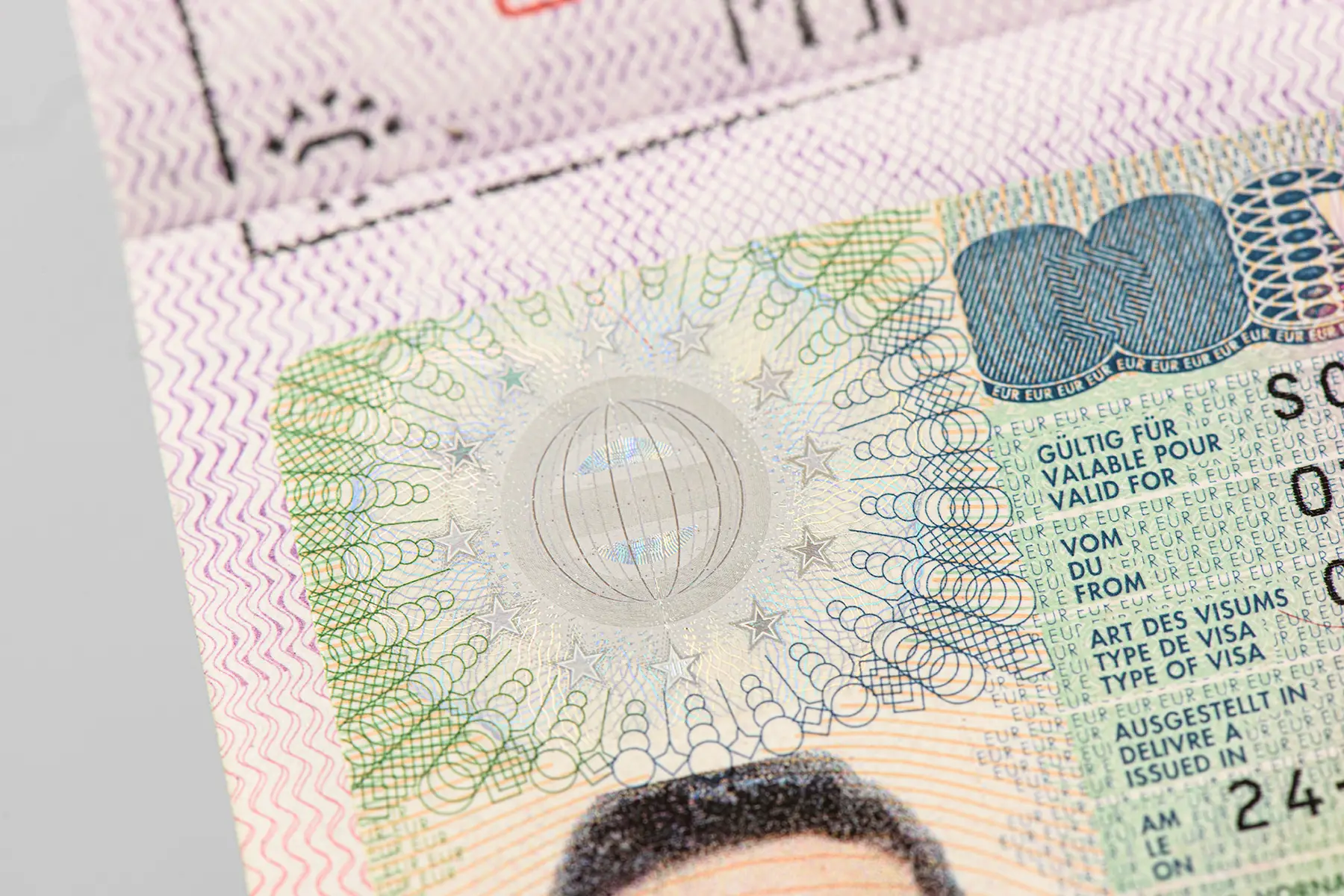As the biggest economy in Europe and located in the center of the continent, Germany provides an attractive environment for foreign workers. However, those with a particular skill or entrepreneurial attitude might be more interested in becoming self-employed and setting up their own business.
Both German citizens and foreign residents can start a business in Germany. Here’s what you need to know to get yourself started, with information on:
- Business culture in Germany
- Who can start a business in Germany?
- Legal structures for businesses in Germany
- How to start a business in Germany as an expat
- Foreign companies opening up a branch or subsidiary in Germany
- Starting up a non-profit company in Germany
- Administrating your business in Germany
- Support and advice when starting up a business in Germany
- Corporate social responsibility in Germany
- Useful resources
Versicherungsbüro Weiss
If you need insurance in Germany, leave it to the specialists at Versicherungsbüro Weiss. This independent insurance broker specializes in helping internationals navigate the German insurance market, find coverage, and even make claims. Their English-language services make insurance accessible. Contact Versicherungsbüro Weiss today for expat-friendly insurance assistance.
Business culture in Germany
German business culture has been historically renowned for high levels of organization, formal business relationships, and also a long tradition of collective agreements between workers and companies. The vast majority of German businesses are small and medium-sized enterprises (SME). Decision-making is typically top-down, but employees are generally well-protected.

However, things are diversifying with an increase in smaller, more flexible businesses in recent years. Germany currently has the fourth fastest growth in small businesses. It is considered a good location to set up a business, ranking 10th on the 2021 Global Innovation Index, and also 22nd in terms of ease of doing business according to the World Bank. Although setting up requires a lot of paperwork, it’s fairly straightforward and there is plenty of help available.
Over 100,000 new businesses start up each year in Germany. Nearly a third of these (30.5%) were in the IT/tech sector in 2021. Other popular industries were healthcare, food/drink and transport/logistics.
Foreign residents can start up their own business in Germany. In fact, foreign-owned businesses employ around 3.4 million workers in Germany (8% of total employment). Men are more likely to run a business, with the share of female-owned small and medium-sized business in Germany decreasing from 19.4% in 2013 to 15.4% in 2019.
Who can start a business in Germany?
Citizens from EU/EFTA countries don’t need to meet any residency requirements and can start a business in Germany on the same basis as a German resident. However, non-EU/EFTA nationals need a German residence permit, which may mean applying for a visa for self-employment purposes and convincing the German authorities of the viability and value of your business idea.
Financial requirements for starting a German business generally depend on the type of business you set up. The German government business start up portal has a section on financing to help you work out what you’ll need. You may also need to acquire a license for your specific trade or field, which may mean meeting minimum qualification requirements (more information below).
Legal structures for businesses in Germany
There are many different legal forms that German businesses can take, which can roughly be split into three categories:
Sole proprietorships (Einzelunternehmen)
These are German businesses run by a single individual, where the business doesn’t exist as a separate legal entity. The owner’s personal and professional income are treated as singular and the owner is personally liable for any business debts.
Sole proprietorships in Germany generally come in two forms:
- Self-employed tradesperson, or business person (Gewerbetreibender) – which applies to most commercial activities – for example, skilled trades, retailers and goods producers. Tradespeople need to enter the commercial register in Germany.
- Freelancer (Freiberufler) – this applies to certain “liberal professions” such as medical, legal, financial, scientific and linguistic professions. You can consult the Institute of Liberal Professions for a list of qualifying professions. Freelancers only have to register with the tax office, and not the commercial register. It’s ultimately the tax office that decides which category your business falls into. Some liberal professions require membership of a professional association.
Partnerships (Personengesellschaften)
Partnerships have two or more owners. They can usually be formed with minimal formalities (for example, a simple business agreement), and there is no minimum capital requirement. There are various different forms of partnership agreement. Unless the business is a form of limited partnership, liability is the same as with sole traders, and each owner is personally responsible for their share of business debt.

Two common German partnership forms are:
- General partnership, or civil law partnership (Gesellschaft bürgerlichen Recht – GbR) – the most common type of partnership in Germany. Each owner pays income tax on their profit share. GbR businesses only have to enter the commercial register if annual turnover exceeds €250,000, in which case they have to become a general commercial partnership (offene Handelsgesellschaft – OHG).
- Limited partnership (Kommanditgesellschaft – KG) – agreement where at least one partner is fully liable and at least one partner with limited liability who doesn’t partake in the management of the business (usually an investor). The KG needs to enter the commercial register and have articles of association.
Corporations
Corporations are businesses that exist as separate legal entities. As such, they are taxed separately through corporate tax. They can have one or more owners, but each one is legally classed as an employee (e.g. director) whose liability is limited to assets they’ve invested in the business. All corporations need notarized articles of association, a managing director/management board, entry into the commercial register, and a minimum share capital.
The main types of German corporations are:
- Limited Company (Gesellschaft mit beschränkter Haftung – GmbH) – this is the most common form of German business. The GmbH needs at least €25,000 share capital, half of which needs to be in a business bank account at the time of registration.
- Provisional Limited Company (Unternehmergesellschaft – UG) – also known as the Mini-GmbH. It’s essentially the same as the GmbH but with an initial minimum share capital of €1. Business profits are then held in a reserve until €25k is reached and the business converts to a GmbH.
- Public Limited Company/Joint Stock Corporation (Aktiengesellschaft – AG) – a company where shares are traded on the stock market. AGs are usually larger companies. Minimum share capital is €50,000, with at least 25% in the account when registering.
How to start a business in Germany as an expat
Make sure you have a viable business idea
The first step is to do your research and make sure that you have an idea that could work. This is especially important if you have to apply for a German visa as you’ll need to write a strong business plan, and convince the authorities of the benefits of your business.

A good starting point if you’re already living in Germany is your local Point of Single Contact (Netzwerk Einheitlicher Ansprechpartner), which can provide online and in-person administrative support and advice, telling you what requirements you need to meet. You can also find useful pointers on the German government business portal.
Sort out your business visa requirements
Residents from EU/EFTA member states and non-EU/EFTA nationals who hold citizenship or permanent residence in Germany can generally start up a business without restrictions under the same terms as German citizens. You’ll just need to register your business with the relevant authorities (see below).
If you are already living in Germany on a visa and temporary residence permit, you’ll need to check the terms of your visa to see if you can start a business. Germany has a work visa for business and self-employment. If you have a different type of visa, you may need to apply for a change of visa purpose through your local migration office.
Those from outside the EU/EFTA who want to move to Germany to start a business or work as a freelancer will usually need to apply for a self-employment visa, which is valid for three years and is then renewable.
Obtain any necessary licenses or permits
Many professions in Germany require specific licenses, permits, memberships or certificates. You’ll need to get these before registering your business. Examples include:
- Qualifications and/or association memberships for many of the freelance liberal professions, for example doctors, engineers, and architects.
- Trade permits (gewerbeerlaubnis) for certain trades, for example gambling businesses, insurance brokers, or property agents.
- Licenses to start up some businesses, for example nursing care services, catering businesses, or taxi companies
- Master craftsperson certificate (meisterbrief) for those carrying out skilled crafts
- Regulated trades requiring supervision need a police clearance certificate (polizeiliches führungszeugnis), and an excerpt from the central trade register (gewerbezentralregister). Such trades include retailers of high-priced goods, installers of safety equipment in buildings, and credit or detective agencies
You can find out about professional requirements from the Chamber of Industry and Commerce (Deutsche Industrie- und Handelskammer – DIHK), the Chamber of Skilled Crafts (Handwerkskammer – HWK), and the Institute of Liberal Professions (Institut für Freie Berufe – IFB). Certain licenses and memberships may also involve paying a fee.
Register your business in Germany
You’ll need to register your business in Germany before you start trading. How to do this depends on the nature of your business:
- If you are a self-employed tradesperson (Gewerbetreibender) or starting up a corporation or partnership, you need to register with your local Trade Office (Gewerbeamt).
- If you are a freelancer (Freiberufler), you need to register with your local Tax Office (Finanzamt).

Registering through the Trade Office usually costs between €10-40. You will need to provide valid ID, plus your residence permit (or self-employment visa with temporary permit). You’ll also need to show any licenses, permits or certificates detailed in the section above. Corporations will also have to provide:
- Articles of association
- Name, address, and legal form of the business
- Details of all owners or shareholders for the business
- Business bank account details with evidence of share capital deposit
The Trade Office will notify the Tax Office, the Commercial Register (Handelregister), the IHK (or the HWK), and the trade supervisory office responsible for occupational health and safety (gewerbeaufsichtsamt).
If you are a freelancer, you won’t need to register with the Trade Office or enter into the Commercial Register. You just need to register with your local Tax Office to receive your tax number (Steuernummer), which you’ll then need for tax purposes.
See more information about how to register here.
Register for social security
Unlike employees, self-employed workers in Germany are not automatically registered for social security. You will need to register yourself, either with statutory social insurance schemes or through private insurance. Some social insurance is compulsory for self-employed in Germany, but other forms are optional. If you set up a corporation, you will then be treated as an employee, and the company will have to register you and any other employees for all statutory schemes.
Social security in Germany includes:
- Pensions insurance (Rentenversicherung) – this is only compulsory for some self-employed workers. You can register with the statutory German Retirement Insurance Fund or take out a private German pension. If you need advice on your pension, it’s worth getting expert advice. The professionals at Hypofriend can assist you with your options and help you find a solution.
- Health insurance (Krankenversicherung) – also includes long-term care insurance (Pflegeversicherung). All German residents need health insurance coverage. You can choose between statutory health insurance or a private scheme.
- Unemployment insurance (Arbeitlosenversicherung) – this is voluntary for self-employed in Germany and covers you should your business stop trading and you spend time unemployed. You can register into the statutory scheme through your local employment office or take out private insurance.
- Accident insurance (Unfallversicherung) – also voluntary for self-employed, you can register with the Employers Liability Insurance Fund (Deutsche Gesetzliche Unfallversicherung – DGUV), or take out a private accident policy.
Artists in Germany can enrol in the Artists Social Insurance Fund (Künstlersozialkasse – KSK) for coverage.
Whereas employees in Germany split their social security contributions with the employer, self-employed workers need to pay contributions in full themselves.
Foreign companies opening up a branch or subsidiary in Germany
Foreign businesses that want a presence in Germany can choose to open up a branch (zweigniederlassung) or a subsidiary (töchtergesellschaft). The key difference between the two is that a subsidiary, while still being under some level of control by the owning company, is a legally independent entity.
Branches of foreign businesses in Germany can set up quite easily. As they are legally dependent on the parent company, they don’t need to go through the full incorporation process. They can use existing articles of association, and only need to enter the trade register. The branch maintains separate accounts and pays tax on its German income. Parent companies should appoint a representative who will then be the account signatory and take care of management of the business.
Subsidiaries, as separate legal companies, have to go through the same processes and meet the same requirements as German corporations. This means entering the commercial register, providing share capital and also paying taxes as a German company. The parent company usually retains a degree of control through board membership and owning shares.
Starting up a non-profit company in Germany
German citizens and foreign residents can set up a non-profit company (Gemeinnützige GmbH – gGmbH) in Germany. This takes much the same form as a private limited company (GmbH) in terms of requirements, registrations, and share capital. The chief difference is that the objectives of the company, as laid out in the articles of association, need to serve a social or charitable purpose and any money made needs to be put back into the organization to serve this purpose.

Non-profit companies are exempt from many business taxes such as trade tax and corporate tax, plus they usually pay reduced (or sometimes no) VAT. However, their charitable objectives need prior approval from the Tax Office.
The two other main types of non-profit organisation are:
- Association (Verein) – these are similarly structured to non-profit companies, and need articles of association and a management board or committee. They generally need seven founding members and enter the Register of Associations (Vereinsregister) rather than the Commercial Register. There is no minimum investment amount.
- Foundation (Stiftung) – a charitable organization set up to provide money or assets according to a defined purpose laid out by its founder, in accordance with sections 80-88 in the German Civil Code. Foundations need a minimum capital investment of €50,000. They often form part of a German will.
Administrating your business in Germany
One essential part of starting a business in Germany is getting your administration in order. This means keeping a record of your income and expenses, which you must retain for ten years. In addition, any you should keep records of correspondence for six years. Furthermore, it’s crucial that your invoices are clear, up-to-date, and in line with German legal requirements.
You should also ensure that you know which taxes you need to pay and which insurance your business needs. For example, some businesses will require professional liability coverage. Companies offering this in Germany include helden.de, and if you need assistance handling your business insurance, Versicherungsbüro Weiss offers tailor-made support for internationals.
Depending on the type of company you start, you may need to open a separate business bank account. Another option is using an international or mobile/online bank that offer business accounts, such as:
The advantages are plenty, including an English-language app. You can also search for banks in the Expatica business directory for Germany and compare deals on DeutschesKonto. There is also plenty of accounting and tax software available, such as:
As a self-employed worker, you’ll also need to organize your own social security payments.
Finally, if you employ or plan to hire staff, there are a lot of considerations, from where to find competent employees to taxes, pensions, health insurance and social security.
We cover all this and more in our guide to running a business in Germany.
Support and advice when starting up a business in Germany
The Federal Ministry for Economic Affairs and Climate Action (Bundesministerium für Wirtschaft und Klimaschutz – BMWK) has an online business startup portal with information and advice on key topics, which is a good starting point. The BMWK also has information on financial support for startups and SMEs.
Other support and advice for businesses include:
- Local Chambers of Commerce (Industrie-und Handelskammertag – IHK) – provide a range of support to new businesses and startups (in German)
- KfW Bankengruppe – manages the Federal Government’s business support loans program
- EXIST program – funding for university-based business startups
- Federal Funding Advisory Service – information on funding for SMEs involved in research or innovation
- National Agency for Women Startups Activities and Services (bundesweite gruenderinnenagentur – bga) – support for women entrepreneurs
- Network IQ – support for foreign residents wanting to start a business in Germany
- Employment Agency (Bundesagentur für Arbeit) – offers startup grants to those on unemployment benefits.
- German Federal Chamber of Tax Consultants (Bundessteuerberaterkammer – BSTBK) – find a tax advisor (in German)
- German Association of Lawyers (Deutsche Anwaltauskunft) – find a business lawyer (in German)
- Federal Association of Notary Publics (Deutscher Notarverein) – find a public notary (in German)
Corporate social responsibility in Germany
Germany has a relatively strong tradition of corporate citizenship underpinned by Federal Government legislation. The National Corporate Social Responsibility (CSR) Forum launched in 2009, leading to the National CSR Action Plan 2016-20 (in German) focusing on sustainable business practices. In recent years, the focus has switched to due diligence in global supply chains. A new Supply Chain Act is due to start coming into force from 2023.
In practice, Germany ranks 17th out of 49 European countries on CSR Hub ratings with a score of 54/100. Businesses in Germany can promote CSR in a number of ways such as improving worker rights and adopting staff-oriented human resource management, adopting environmentally sustainable practices, getting involved and giving back to local communities, and committing to ethical global supply chains.
The BMWK has a CSR section on its website (Unternehmens Werte) which outlines CSR, national policies and minimum global standards. You can also find general advice on developing a CSR policy for a multinational company on the OECD’s website and for SMEs on Micro Startups.
Useful resources
- BMWK online portal – Federal government support and advice for starting a business in Germany
- BMWK point of single contact – administrative support for businesses in each of the 16 states








